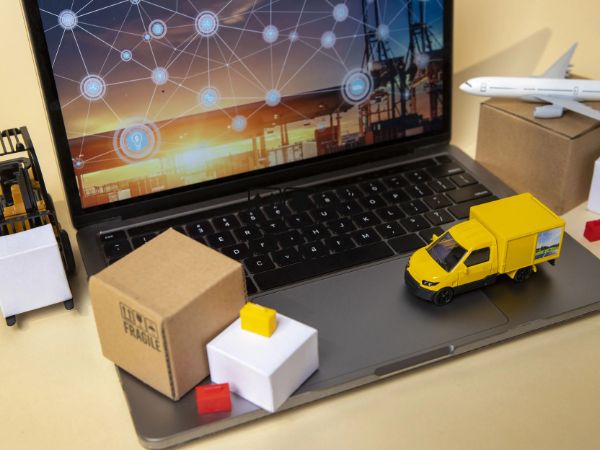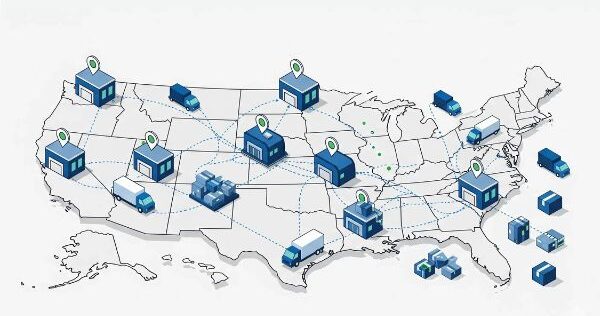In the complex global marketplace, leading brands aren’t just selling products; they’re orchestrating intricate operational symphonies. At the heart of this orchestration lies Third-Party Logistics (3PL). Far beyond simple shipping, 3PL providers offer a sophisticated, integrated approach to managing the entire supply chain, making them an indispensable partner for businesses striving for efficiency, scalability, and competitive advantage.
This guide will delve into what Third-Party Logistics truly entails, why it’s distinct from general logistics, and the strategic reasons why top-tier brands entrust their critical operations to these expert providers.
What is Meant by Third-Party Logistics (3PL)?

Third-Party Logistics (3PL) refers to the outsourcing of a company’s distribution and logistics functions to an external provider. Essentially, a 3PL takes over the crucial, often complex, tasks involved in getting products from the manufacturer to the end customer. This isn’t just about moving goods; it’s about managing the flow of information, inventory, and resources across various points in the supply chain.
A 3PL provider typically offers a comprehensive suite of services that can include:
- Warehousing and Storage: Providing secure, optimized facilities for inventory.
- Transportation: Managing freight, carriers, and shipping routes.
- Order Fulfillment: The entire process of picking, packing, and shipping individual customer orders. For a deeper understanding of this core service, read our article What is an Order Fulfillment Service? A Comprehensive Overview.
- Inventory Management: Tracking stock levels, managing replenishment, and optimizing inventory placement.
- Value-Added Services: Such as kitting, light assembly, custom packaging, and returns processing.
By leveraging the infrastructure, technology, and expertise of a 3PL, leading brands can transform their operational challenges into strategic advantages, allowing them to focus on innovation and market expansion rather than logistical minutiae.
What is the Difference Between Logistics and 3PL?

The terms “logistics” and “3PL” are often used interchangeably, but there’s a crucial distinction. Logistics is the overarching science and management of how resources are acquired, stored, and transported from their point of origin to their final destination. It’s the broad discipline that encompasses all the planning, execution, and control involved in moving goods. For a comprehensive look at the larger scope, explore A Complete Guide to Understand the Importance of Distribution in Logistics.
A 3PL (Third-Party Logistics), on the other hand, is a type of provider or a service model within the broader field of logistics. A 3PL is an external company that performs some or all of these logistics functions on behalf of another company. So, while all 3PL services fall under the umbrella of logistics, not all logistics are performed by a 3PL. You could perform logistics in-house, but using a 3PL means outsourcing those functions to a specialized external partner.
This distinction highlights why leading brands choose 3PLs: they are not just performing logistics; they are doing so with specialized tools, scale, and expertise that an individual brand often cannot replicate internally.
Why Leading Brands Prioritize Expert Third-Party Logistics
Top companies understand that logistics is a competitive differentiator. Relying on expert 3PLs isn’t just a cost-cutting measure; it’s a strategic move that underpins market leadership.
Strategic Location and Network Optimization

Leading 3PLs operate vast networks of fulfillment centers strategically located near major transportation hubs and customer bases. This geographical advantage is critical for:
- Reduced Transit Times: By storing inventory closer to customers, brands can offer faster shipping options, including two-day or even next-day delivery, meeting modern consumer expectations.
- Lower Shipping Costs: Shorter shipping distances directly translate to reduced fuel consumption and lower freight charges.
- Risk Mitigation: A dispersed network helps protect against regional disruptions, allowing a 3PL to reroute shipments and maintain service levels even in the face of unforeseen events.
- National Reach: For brands aiming for widespread market penetration, a National Fulfillment Service provided by a 3PL ensures consistent service quality across an entire country.
Unparalleled Technological Edge
The technology employed by expert 3PLs is often beyond the reach or budget of individual brands. This technological prowess drives efficiency and insight.
- Advanced Warehouse Management Systems (WMS): These systems optimize every aspect of warehouse operations, from smart inventory placement to efficient picking routes. They provide real-time inventory visibility and accuracy.
- Transportation Management Systems (TMS): TMS software optimizes shipping routes, carrier selection, and freight costs, ensuring the most efficient movement of goods.
- Data Analytics and AI: Leading 3PLs leverage big data and artificial intelligence to predict demand, identify supply chain bottlenecks, and continuously optimize processes, providing clients with actionable insights.
- Seamless Integration: A 3PL’s systems integrate smoothly with popular e-commerce platforms (Shopify, WooCommerce, etc.), automating order flow and inventory updates, which is key for a truly optimized supply chain. Learn more about this by reading How a 3rd Party Fulfillment Service Optimizes Your Supply Chain.
Scalability and Flexibility for Growth
One of the most compelling reasons leading brands choose 3PLs is the inherent scalability they offer.
- Effortless Scaling: Whether experiencing seasonal spikes (like holiday rush) or rapid growth, a 3PL can quickly scale its operations—adding more labor, space, or technology—without requiring the brand to make massive capital investments or logistical overhauls.
- Adaptability: The dynamic nature of e-commerce requires constant adaptation. 3PLs are designed to be flexible, adjusting to changes in product lines, packaging requirements, or market demands far more easily than an in-house operation.
- Support for E-commerce Growth: For businesses focused on digital sales, a dedicated 3PL Fulfillment Service: Your Secret Weapon for E-commerce Growth becomes crucial, enabling rapid expansion without logistical headaches.
Expanding Beyond Core Fulfillment: Value-Added Services
Expert 3PLs don’t just stop at traditional warehousing and shipping. They offer a range of value-added services that enhance a brand’s offerings and streamline operations.
- Kitting and Assembly: Combining multiple individual items into a single, ready-to-ship package, ideal for subscription boxes or gift sets.
- Custom Packaging and Branding: Ensuring that every package reflects the brand’s identity, creating a memorable unboxing experience for the customer.
- Quality Control: Performing inspections upon arrival or before shipment to ensure product integrity.
- Customs Brokerage: Navigating the complexities of international shipping and customs regulations for brands with a global reach.
- Returns Management (Reverse Logistics): Efficiently handling product returns, including inspection, restocking, or disposal, which is a critical aspect of customer satisfaction. To fully understand why this is so vital for customer loyalty, consider What Is a Fulfillment Service and Why Do You Need One?
The Strategic Partnership: Why Leading Brands Trust 3PLs
Ultimately, the decision to work with a Third-Party Logistics provider is about forming a strategic partnership. Leading brands recognize that their 3PL is an extension of their business, directly impacting customer satisfaction and market reputation.
- Expertise and Best Practices: 3PLs are specialists in logistics. They bring years of industry experience, established best practices, and continuous process improvement to the table, ensuring operations are run at peak efficiency.
- Risk Mitigation: By distributing operations across a robust 3PL network, brands mitigate risks associated with natural disasters, labor shortages, or single-point-of-failure scenarios. The 3PL also often carries insurance and adheres to strict security protocols.
- Focus on Core Business: Outsourcing logistics frees up internal resources, allowing brands to dedicate their time and capital to product innovation, marketing, and sales—the core drivers of business growth. This is particularly beneficial for smaller e-commerce businesses looking to scale, as discussed in Why E-commerce Fulfillment Service Are Essential for Small Businesses.
- Dedicated Support: Professional 3PLs offer dedicated account management, ensuring that client needs are understood and addressed promptly, leading to a more collaborative and responsive partnership.
Conclusion
For leading brands, Third-Party Logistics is not merely an operational choice; it’s a strategic imperative. By entrusting their complex logistics to expert 3PL providers, these companies gain access to unparalleled efficiency, advanced technology, scalable solutions, and a comprehensive suite of value-added services. This partnership allows them to navigate the complexities of the modern supply chain with agility and precision, ultimately enhancing customer satisfaction, reducing costs, and solidifying their position as market leaders.
Ready to harness the power of expert Third-Party Logistics for your brand? Visit Logistics770.com to explore our tailored solutions and discover how we can become your secret weapon for sustained growth and operational excellence.
